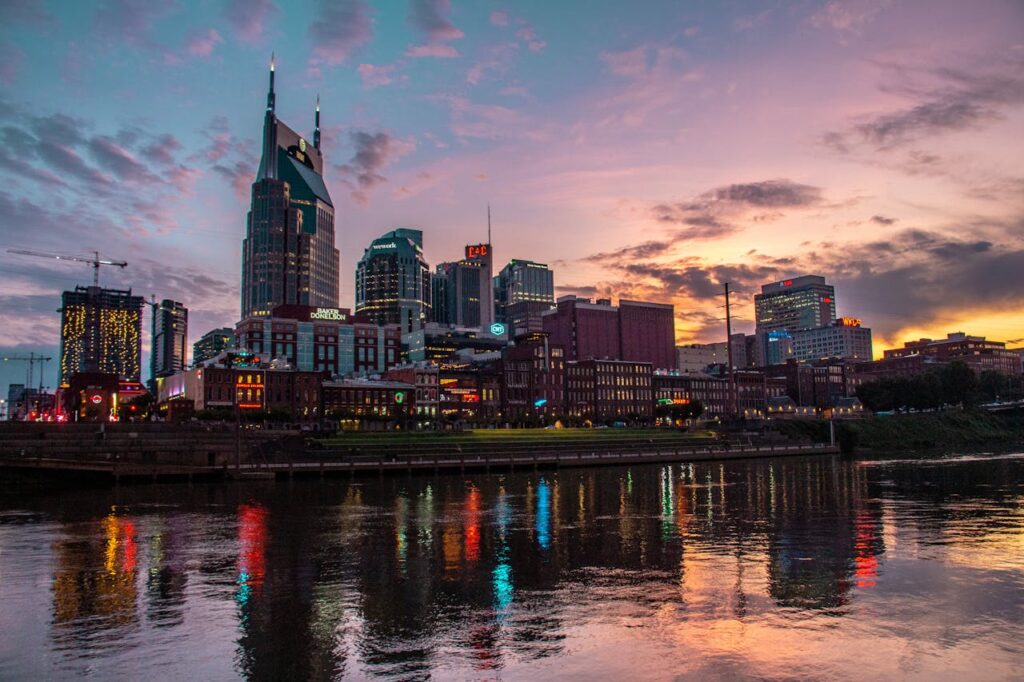Nashville’s real estate development is vibrantly woven with threads of historic charm, modern innovation, and community-centric projects. This mix has created a unique urban landscape that caters to the eclectic tastes and needs of its residents. From the reimagining of iconic downtown buildings to the birth of new community hubs, Nashville stands as a testament to a city that values growth, sustainability, and the collective spirit of its people.
Historic Downtown Revitalization
The heart of Nashville beats strongest in its historic downtown, where the past and present merge in a dance of architectural renewal. A prime example of this trend is the transformation of the former State Bar Association’s building. Purchased for $6.8 million in late 2021, this property’s sale underscores the appetite for preserving Nashville’s architectural heritage while adapting it for contemporary use. Such efforts are not merely about maintaining facades but about reinvigorating the urban core with spaces that are both functional and evocative of the city’s rich history.
Mixed-Use Developments and Community Projects
At the forefront of Nashville’s urban evolution are mixed-use developments, epitomized by projects like the $48.75 million Cool Springs venture. These complexes are microcosms of urban life, blending work, leisure, and living spaces into cohesive units that offer convenience and community. Similarly, the Nolensville town square project, with its 400 housing units, represents a step towards more inclusive urban planning. These projects aim not just to build structures but to foster communities, integrating diverse facilities to meet the varied needs of their inhabitants.
Affordable Housing and Sustainable Growth
In the midst of Nashville’s burgeoning real estate development, the city confronts the persistent challenge of affordable housing head-on. As neighborhoods transform and new developments rise, the question of accessibility and affordability for all residents takes center stage. Initiatives aimed at tackling this issue reflect a multifaceted approach, combining policy reform, community engagement, and innovative design solutions for residential properties.
One of the most significant moves in recent times has been the Charter Revision Commission’s proposal to transform the historic fairgrounds into a hub for affordable housing. This initiative symbolizes a shift towards repurposing underutilized public spaces to meet the city’s housing needs, particularly for low- and middle-income families. By considering such a landmark change, Nashville demonstrates its willingness to prioritize people over profits and community benefits over commercial interests.
Beyond policy proposals, Nashville is seeing an increase in the development of mixed-income housing projects. These developments are designed to integrate affordable units seamlessly with market-rate ones, fostering diverse communities and mitigating the stigma often associated with low-income housing. The aim is to create inclusive neighborhoods where economic diversity is a strength rather than a divide.
Sustainable growth is another pillar of Nashville’s development ethos. The city is increasingly focusing on green building practices, from energy-efficient construction methods to the integration of green spaces within urban projects. Developments are encouraged to pursue LEED certification or incorporate renewable energy sources, reducing their environmental footprint and setting a new standard for urban living.
Furthermore, transportation and accessibility remain critical components of sustainable growth. Nashville is enhancing its public transportation infrastructure and promoting mixed-use developments that reduce reliance on cars, thereby decreasing traffic congestion and pollution. By improving connectivity and walkability, the city aims to create a more livable and environmentally friendly urban environment.
Future Prospects and Challenges In the Nashville Area
As Nashville looks to the future, it faces the delicate task of nurturing its rapid development without compromising on sustainability or community values. Projects like Oldacre McDonald’s development near Percy Priest Lake are indicative of a forward-thinking approach that seeks harmony with the city’s natural landscapes and communal ethos. Such endeavors are crucial in guiding Nashville’s growth trajectory, ensuring it remains a place of innovation, inclusivity, and integrity.
In Conclusion
Nashville’s real estate development scene is a dynamic confluence of tradition and innovation in Tennessee. With a steadfast commitment to preserving its unique heritage, fostering community, and pursuing sustainable growth, Nashville is crafting an urban environment that is resilient, inclusive, and vibrant. The city’s development initiatives are not just about creating spaces but about building a legacy—a legacy that honors its past and is poised for a future filled with promise and potential.
